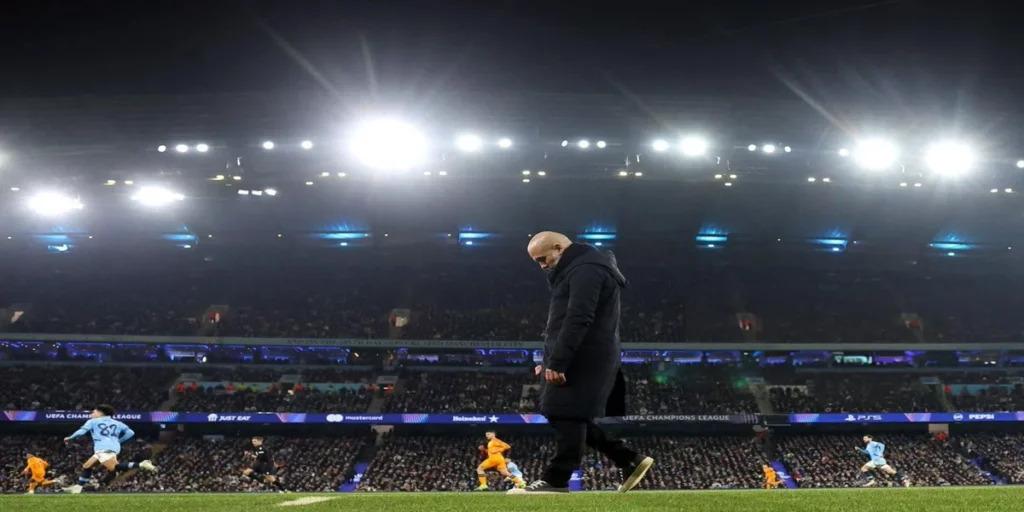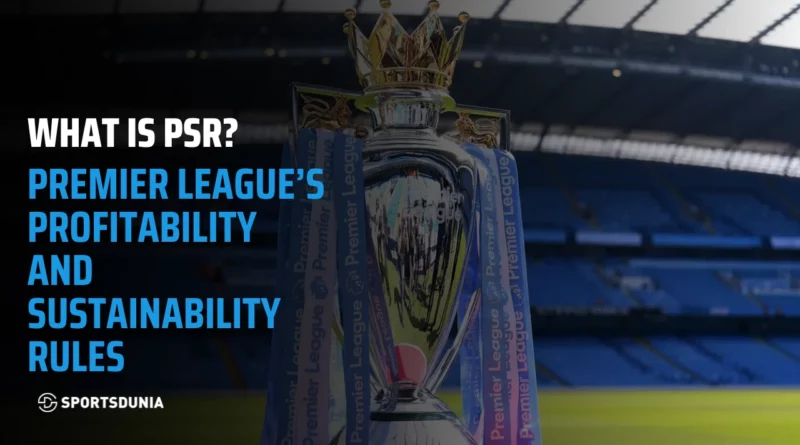PSR Premier League: A Full Breakdown Of Premier League Rules On Profitability & Sustainability
The English Premier League has certainly changed a lot over the years and has grown significantly with several financial changes. While clubs used to spend a lot of money on high-profile transfers in the transfer window, the Premier League started the Profit and Sustainability Rules (PSR) to control the clubs’ finances and prevent huge losses in the transfer window.
While several clubs have criticized PSR as they are unable to spend a hefty amount of money in transfer windows, the Premier League aims to enforce several rules through a strict phase to regulate the finances of the clubs.
After having several controversies due to the PSR, the Premier League continues to stick with the PSR for the next season of the league. It means the clubs will have to carefully examine their financial status before making any huge moves in the next transfer window. Join us as we provide a full breakdown of the Premier League’s PSR and how it has changed the Premier League over the years. Here are details on Premier League rules.
What Does PSR Mean?

The PSR Premier League was started way back in 2015 and was implemented to manage each team’s finances and help them avoid huge losses in the process. This was initially a part of the FFP Premier League (Financial Fair Play) framework, but over the years, PSR rules Premier League have evolved into more much stricter and stiffer model. And all this was done to ensure long-term financial stability and help promote fair competition as well as to maintain a balance in the league.
It can be found in Section E of the Premier League rules or handbook, which lays out several rules and regulations for each club. If any club fails to provide the expected results may find themselves in a tricky situation, mostly leading to points deductions, hefty fines, transfer restrictions or bans, and plenty of other disciplinary actions to strengthen the club’s overall financial state.
How does PSR rules Premier League work?
Well, all the clubs of the English Premier League are required to submit their Profit & Loss account as well as balance sheet by March 31 of each year. And based on that, PSR calculation takes place, which decodes the club’s finances over the three-year term and a maximum of £105 million loss for each club for three years is allowed. The club revenue, which is then calculated, is divided into several types, such as football-related, non-football-related, and owner funding. For a more detailed version, look at the table below:
| Revenue Category | Sources of revenue |
|---|---|
| Football-related | Matchday rights Broadcasting rights Commercial and sponsorship deals |
| Non Football-related | Concerts Events |
| Owner Funding | Financial investments from Club owners |
While PSR clearly classifies several revenue categories as stated in the table above, certain fundings are excluded from the calculation, such as money invested in developing youth, expenditure on women’s clubs, as well as community development. Still, if the loss of over £105 million is calculated, then there are plenty of sanctions that a club can face.
ALSO READ: Manchester City To Pay ‘Unlimited Compensation’ To EPL Clubs Over FFP Charges.
Sanctions imposed by PSR

Apart from just deduction of points, clubs might even receive hefty fines if they somehow fail to follow the PSR Premier League. While other sanctions, like transfer restrictions or a ban (sometimes), which would block clubs’ access to the transfer window to sign new players to strengthen their team, would affect their squad. If anyhow, a case becomes too extreme, that club might be even removed from the league itself.
If a Premier League side exceeds an overall loss of £105 million in three seasons, they might get their points deducted from the Premier League table. The amount of points deducted depends on the intensity of the loss incurred by the club. Clubs like Nottingham Forest and Everton have paid the price for breaching PSR as they faced points deductions, which took them down to the Premier League table.
Loopholes and Changes in PSR over the years
Associated Party Transactions (APTs)

Over the years, clubs have devised several techniques and methods to comply with the PSR while spending a hefty amount on transfer fees by managing to find some loopholes in the rules. To limit their losses, clubs started Associated Party Transactions (APTs). APTs were commercial deals between clubs and several companies linked to their owners. These include sponsorship and partnership deals, which would inflate the club’s revenue which further allowing the clubs to spend more on transfers, along with complying with the PSR.
While the Associated Party Transactions (APTs) were more beneficial for wealthy owner-led clubs, this changed the dynamics and led the Premier League to introduce a few new rules that allow access to these transactions at a fair market value. All the commercial deals are carefully reviewed independently to ensure the value is not inflated.
The Abu Dhabi-led Manchester City’s Etihad deal was also said to be overvalued and the club is currently undergoing an investigation for over 100 financial breaches, which poses a huge problem for the club.
Amortization
Amortization means the cost of the transfer fee is distributed over the length of the contract. Teams used to avoid huge losses through selling players, and counted the entire transfer fee as a profit in the financial account of the club.
In the Premier League, Chelsea was seen implementing this method by signing players with 8-year-long contracts to reduce their financial rate under PSR. With this club balanced their account by selling youth academy talents like Mason Mount, which helped them generate pure profit in the balance sheet. This loophole allowed teams to spend excessively even beyond while remaining under their loss margin. However, this was easily filtered out by the Premier League and UEFA by imposing a 5-year cap on amortization in 2024 to prevent stretching payments.
Academy Player swap deals
As PSR excludes expenditure on youth development, it allowed clubs to take advantage of this loophole and swap their youth talents with low value to generate profit on their balance sheet. Teams agreed to sell their homegrown youth talents to each other for a relatively low price tag to boost their finances, making sure their sheet comply with PSR.
However, this also led to the Premier League carefully reviewing such transfers and even warned the clubs that, in such situations, the selling club would return the amount in excess back to the buying club, resulting in no inflation in profits. Several clubs have implemented other loopholes and techniques to comply with PSR, like selling players just before the financial deadline to stay within the PSR limit.
ALSO READ: Man City FFP Charges: Breakdown Of 115 Breaches And Rivals’ Compensation Claims
Premier League’s PSR extended for another season

Despite having several issues with the rules, Premier League clubs have agreed to continue to Profitability and Sustainability rules for another season. Several clubs like Manchester United, Aston Villa, and Newcastle United criticized the rules as they prevented them from signing new talents in the winter transfer window, and the clubs agreed to extend the controversial set of rules for another season recently.
Clubs like Aston Villa would have to keep a check on their spending for another season as they were forced to sell huge players just before the deadline day last year to comply with the PSR.
Not only Aston Villa, but clubs like Newcastle and Man United might be in danger of breaching the PSR this season. As it seems to be controversial all around, clubs would have to face the onslaught of the Premier League’s Profitability and Sustainability rules for another year. It remains to be seen that if the rules will spark another string of controversies this year or not.
Q. What is PSR premier league?
A. PSR stands for Profit and Sustainability Rules, a part of UEFA’s Financial Fair Play, designed to ensure clubs maintain their financial stability while reducing their loss.
Q. When was PSR introduced premier league?
A. PSR was introduced in 2015 in the Premier League.
Q. How does PSR work premier league?
A. PSR ensures each club’s financial situation is stable while reducing their loss by a set amount over three years.
Q. Is PSR the same as FFP?
A. No, PSR and FFP are different from each other.
Q. Is SCR better than PSR?
A. No, it was introduced as an alternative to PSR by the Premier League football’s financial rules; it’s a different one rather than better.
